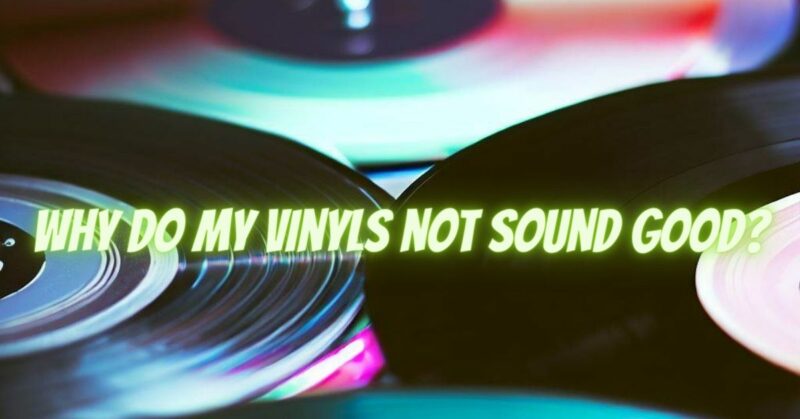Vinyl records have a distinct charm, offering warm, rich sound and a nostalgic listening experience. However, there are instances when your vinyl records may not sound as good as you expect. In this article, we explore common factors that can impact vinyl sound quality and provide troubleshooting tips to help you improve your listening experience.
- Record Condition and Cleaning:
The condition of your vinyl records plays a significant role in sound quality. Dust, dirt, or debris on the surface of the record can introduce pops, crackles, and background noise. Clean your records using a proper cleaning solution and a carbon fiber brush or a record cleaning machine to remove dirt and dust. Additionally, inspect your records for scratches or warping, as these can also affect sound quality.
- Turntable Setup and Calibration:
A poorly calibrated or misaligned turntable setup can result in subpar sound quality. Check the alignment of your turntable’s cartridge and stylus, ensuring proper tracking force and azimuth adjustment. Inadequate anti-skating settings can cause tracking issues and distortion. Consult your turntable’s manual or seek professional assistance to ensure your setup is optimized for the best sound reproduction.
- Stylus Condition:
The condition of your turntable’s stylus (needle) is critical for accurate playback. A worn-out or damaged stylus can lead to distorted sound, diminished high frequencies, and increased surface noise. Regularly inspect and clean the stylus, and replace it when necessary to maintain optimal sound quality.
- Amplification and Speaker Setup:
Inadequate amplification or improper speaker setup can result in unsatisfactory sound quality. Ensure your amplifier or receiver is compatible with your turntable and provides sufficient power and appropriate phono preamp capabilities. Proper speaker placement and calibration can also greatly impact sound quality, so consider optimizing your speaker setup for the best possible listening experience.
- Quality of the Recording:
It’s important to remember that the quality of the original recording itself can affect how vinyl records sound. Some recordings may have been mastered or pressed poorly, leading to inherent limitations in sound quality. Additionally, older recordings may exhibit inherent imperfections, such as tape hiss or limitations in dynamic range. While vinyl records can provide a warm and authentic listening experience, the quality of the original recording can still influence the overall sound quality.
Conclusion:
When your vinyl records don’t sound good, it can be frustrating, but identifying the underlying issues is key to improving your listening experience. Factors such as record condition, turntable setup, stylus condition, amplification, speaker setup, and the quality of the original recording can all impact sound quality. By addressing these factors and following proper maintenance and setup practices, you can enhance the sound quality of your vinyl records and fully enjoy the unique experience they offer.


